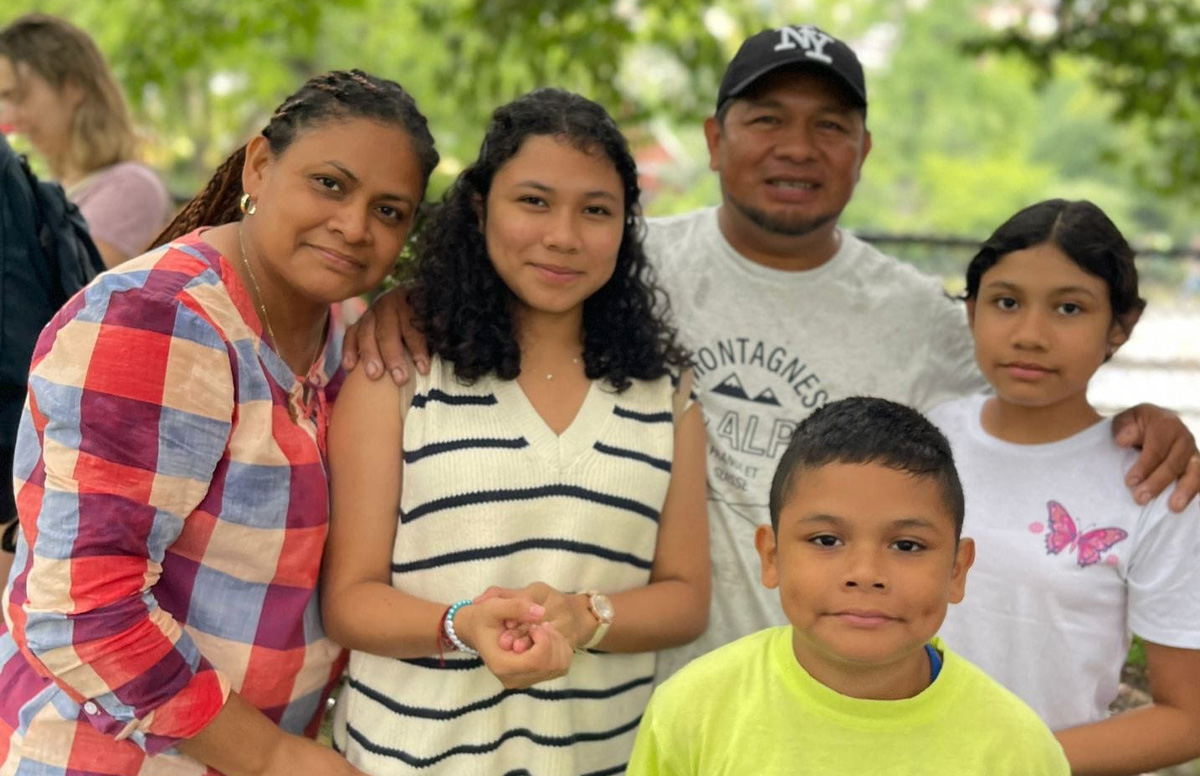When Benedictine, a LeadingAge member with 33 long-term care communities across five states, faced persistent staffing shortages in its rural North Dakota locations, it found an unexpected but powerful partner: Cherokee Federal.
Since May 2025, Cherokee Federal, a collection of tribally owned contracting companies, has matched 23 new employees to long-term health care positions in North Dakota through its immigrant matching program. The initiative is led by a team specializing in helping individuals and families navigate displacement, resettlement, and long-term stabilization, ensuring each placement supports both economic opportunity and community growth.
These new team members—dietary aides, nurse aides, maintenance workers, and housekeepers—have filled critical roles in six rural communities in North Dakota, some with populations under 1,000. The impact has been immediate and deeply felt.
“Benedictine has been recruiting international registered nurses since 2016. While we’ll continue to recruit RNs this way, we now have an avenue for international workers for other roles that is faster and more affordable,” said Kathleen Murray, Benedictine’s director of organizational learning and development. “In addition to filling jobs, our Benedictine facilities are helping build lives and strengthen communities.”
One Nicaraguan family’s story illustrates the program’s potential. The father, hired in maintenance, is now being promoted to a supervisory role and will help recruit future hires. Both his wife and daughter are completing certified nurse aide (CNA) training and preparing for their state exams. Their extended family (pictured, at right) has since joined them in North Dakota, also finding employment at Benedictine. “It’s a ripple effect,” said Kerri Babin, immigration and refugee employment advisor at Cherokee Federal. “It’s not just an employee: It’s a family, it’s kids in school, it’s parents getting involved in coaching. It’s community.”
A New Model for Workforce Development
Cherokee Federal’s workforce matching model bridges two national challenges: underemployment among work-authorized immigrants in high-cost urban areas and chronic labor shortages in rural communities. By connecting qualified individuals to essential roles in health care, hospitality, and community services, the program aims to transform workforce gaps into opportunities for economic mobility and community revitalization.
As part of the program, both workers and employers receive comprehensive support from Cherokee Federal. Job candidates, who are mostly asylum-seekers holding five-year work authorizations, receive personalized guidance, including resume and interview coaching, job placement, and relocation support that covers housing, school enrollment, and transportation planning. Employers benefit from onboarding assistance, cultural competency training, and up to 60 days of post-hire case management to ensure long-term success.
Benedictine considers its participation in Cherokee Federal’s immigrant workforce matching program a step in the right direction for accessing potential new employee populations. “We have appreciated the partnership with Cherokee Federal,” said Murray, who sees the Cherokee model not only as a potential solution to staffing shortages but as a strategic investment in community building. “We’ve gained committed team members, strengthened our communities, and learned how to better support immigrant workers. We’re now cross-training staff, offering [English as a Second Language] support, and actively pursuing grants to expand the model to Minnesota.”
Challenges and Solutions
Although viewed as a success, the program has not been without challenges. Even with proven tools to address educational needs, language barriers remain a hurdle. Housing availability is another issue—one candidate backed out due to delays in securing a place to live. To ensure smoother transitions for future hires, Benedictine is exploring partnerships and funding opportunities.
In its Minnesota grant proposal, it is looking to partner with a refugee resettlement group to provide case management support beyond the initial 60 days offered by Cherokee Federal, recognizing that long-term success requires long-term investment.
A Blueprint for Others
The Cherokee Federal model draws inspiration from the Cherokee Nation’s own history of resilience, displacement and community rebuilding. “Our mission is to create stable futures and help communities thrive,” said Babin. “We’re not a temporary staffing agency.”
The results speak for themselves. The program has brought dozens of new residents to North Dakota, strengthening local economies and revitalizing small towns. Participants earn an average of $18.50 per hour with benefits, and 70% of job candidates successfully secure employment, a measurable impact that demonstrates the model’s power to create lasting opportunity for both workers and employers.
For LeadingAge members, this model offers a replicable, compassionate, and effective approach to workforce development—especially in rural areas where traditional recruitment strategies fall short. Benedictine’s experience shows that, with the right approach, immigrant workforce matching can be more than a staffing solution—it can build communities. As the long-term care sector continues to grapple with labor shortages, programs like Cherokee Federal’s offer a hopeful path forward.

 Shutdown Week Three: Impact of Ongoing Closure on Affordable Housing
Shutdown Week Three: Impact of Ongoing Closure on Affordable Housing


